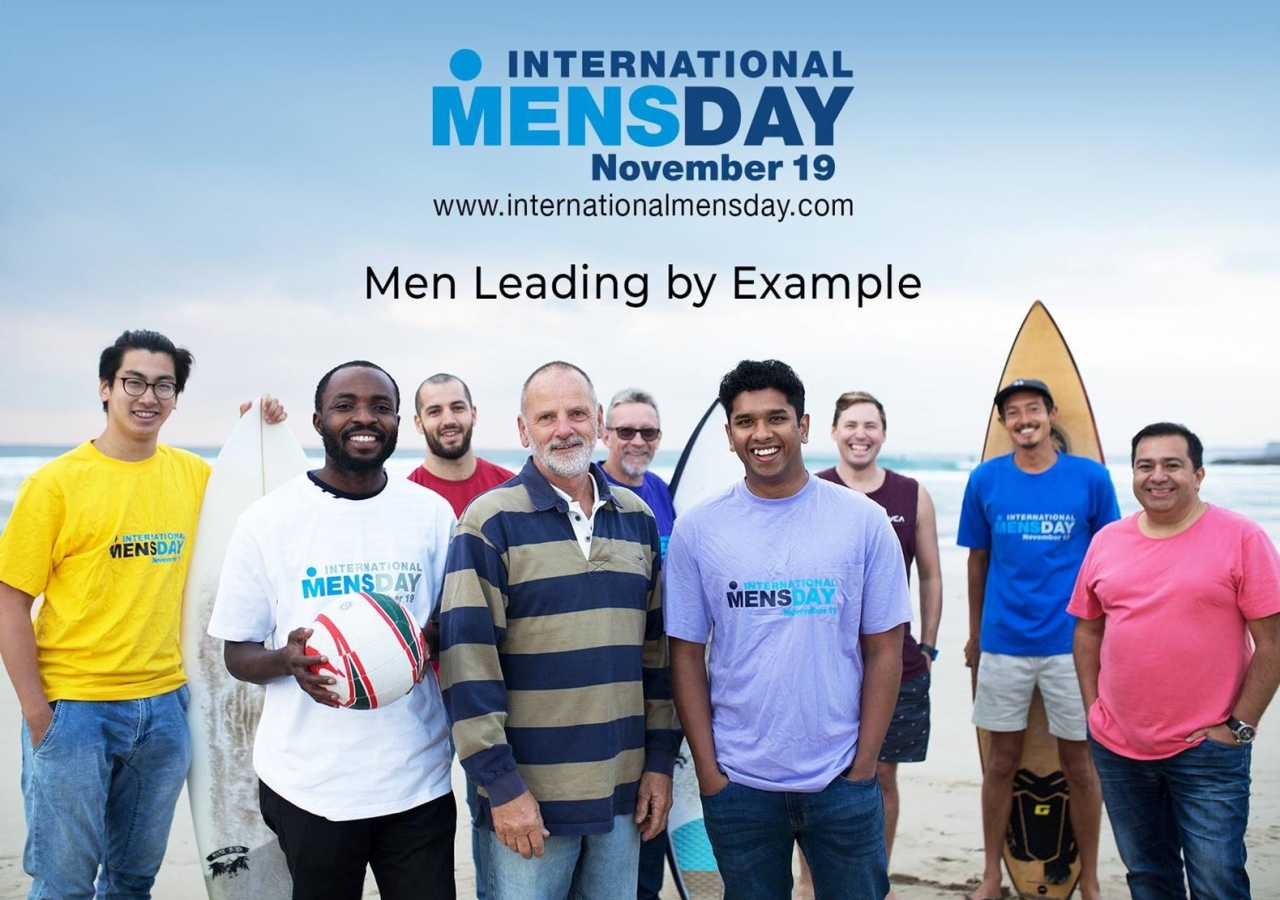There have been calls for an International Men’s Day since the 1960’s and in this era of empowering gender equality, you may have even thought to yourself “Why do women have an international celebration and not men?” or “Men’s contributions and concerns deserve a day of recognition in their own right” and not merely creating an equivalent of International Women’s Day.
Following a series of small events in individual countries in the US, Europe and Australia, International Men’s Day (IMD) was initiated on 1991 and revived on 19th November 1999 in Trinidad and Tobago by history lecturer Dr. Jerome Teelucksingh. The Caribbean initiative is now an annual international event celebrated in over 70 countries with rapidly increasing interest.
International Men’s Day encourages men to teach the boys in their lives the values, character and responsibilities of being a man. It is only when we all, both men and women, lead by example that we will create a fair and safe society which allows everyone the opportunity to prosper.
There are six specific objectives of International Men’s Day:
1. To promote positive male role models; who are living decent and honest lives, not just movie stars and sports men but everyday men
2. To celebrate men's positive contributions to society, community, family, marriage, child care, and to the environment
3. To focus on men's health and wellbeing; social, emotional, physical and spiritual
4. To highlight discrimination against men; in areas of social services, social attitudes and expectations, and law
5. To improve gender relations and promote gender equality
6. To create a safer, better world; where people can be safe and grow to reach their full potential
"The concept and themes of IMD are designed to give hope to the depressed, faith to the lonely, comfort to the broken-hearted, transcend barriers, eliminate stereotypes and create a more caring humanity.” - Dr. Jerome Teelucksingh
There are many inspiring men leading by example in our community and we are fortunate to have a diverse set of role models for the Ismaili youth to emulate. Yet some of the national statistics around Gender Equality are distressing. They prove that the perceptions and attitudes in the wider societies in which we live still have a long way to go to overturn negative gender stereotypes.
At the recent Preparing for Parenthood workshop run by WAP, we discussed that only around 1% of eligible fathers in the UK took Shared Parental Leave and that it can still be perceived as strange for men to be involved with childcare. Anecdotes arose about adults at kids events or appointments casually questioning "Where's Mum?" or the hesitation husbands may feel taking time away from work when a man’s role is expected to be the “sole breadwinner” of the household.
Equally concerning is that studies show men are less likely to acknowledge illness or to seek help when sick. Men aged 20-40 are half as likely to go to their GP as women of the same age and are even less likely to be honest about their symptoms when they do go. The figures are even lower for the likelihood of men to seek help for concerns related to their mental health. A message sometimes heard by young boys is “real men sort out their own problems” which holds them back from accepting the emotional or physical support they need and often from aspiring to be role models themselves.
Communities need to build awareness and create safe environments for every individual to feel empowered to make their own choices in prioritising their family, work, health and wellbeing, rather than simply allowing gender stereotypes to take control.
Our leading example, Mowlana Hazar Imam said in a discussion with Harvard University Professor Diana L. Eck on November 12, 2015:
“Leadership qualities is not gender driven so actually, if you don’t respect the fact that both genders have competencies, outstanding capabilities, you are damaging your community by not appointing those people.”
As we reflect on the themes of International Men’s Day, let us think about how we can enable our community to continue to grow and reach its full potential. Let us respect, support and celebrate all men, women and children as we redefine social stereotypes for the benefit of ourselves and our future generations.
References and further information:








